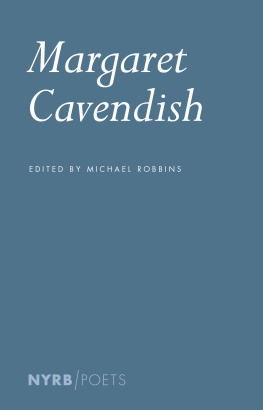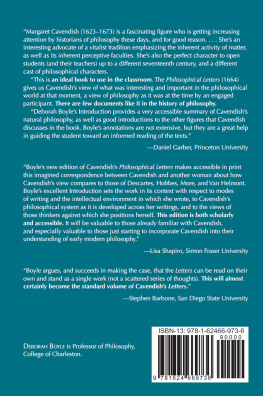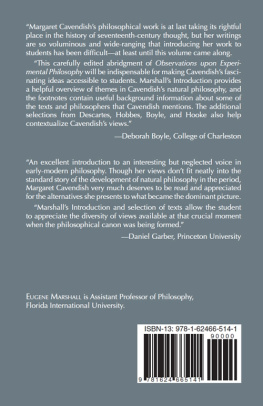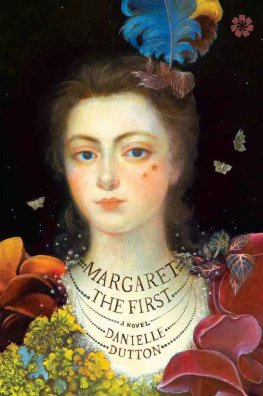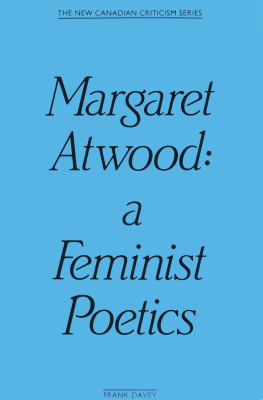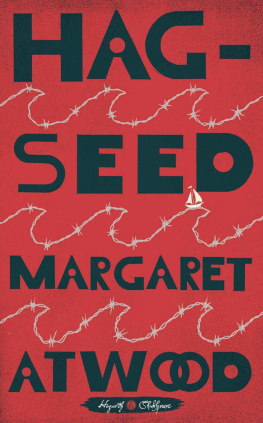Margaret Cavendish - Margaret cavendish
Here you can read online Margaret Cavendish - Margaret cavendish full text of the book (entire story) in english for free. Download pdf and epub, get meaning, cover and reviews about this ebook. year: 2019, publisher: New York Review Books, genre: Science. Description of the work, (preface) as well as reviews are available. Best literature library LitArk.com created for fans of good reading and offers a wide selection of genres:
Romance novel
Science fiction
Adventure
Detective
Science
History
Home and family
Prose
Art
Politics
Computer
Non-fiction
Religion
Business
Children
Humor
Choose a favorite category and find really read worthwhile books. Enjoy immersion in the world of imagination, feel the emotions of the characters or learn something new for yourself, make an fascinating discovery.
- Book:Margaret cavendish
- Author:
- Publisher:New York Review Books
- Genre:
- Year:2019
- Rating:5 / 5
- Favourites:Add to favourites
- Your mark:
- 100
- 1
- 2
- 3
- 4
- 5
Margaret cavendish: summary, description and annotation
We offer to read an annotation, description, summary or preface (depends on what the author of the book "Margaret cavendish" wrote himself). If you haven't found the necessary information about the book — write in the comments, we will try to find it.
Margaret cavendish — read online for free the complete book (whole text) full work
Below is the text of the book, divided by pages. System saving the place of the last page read, allows you to conveniently read the book "Margaret cavendish" online for free, without having to search again every time where you left off. Put a bookmark, and you can go to the page where you finished reading at any time.
Font size:
Interval:
Bookmark:

 Silvester Harding, frontispiece to The Blazing World by Margaret Cavendish M ARGARET C AVENDISH (16231673) was the most prolific woman writer of the Restoration. Born in Essex into a wealthy but untitled family, in 1643 she became maid of honor to Queen Henrietta Maria. At the outbreak of the First English Civil War, Margaret accompanied the queen in her exile to France; in Paris she met William Cavendish, First Duke of Newcastle, and the two were married in 1645. While the couple lived on the Continentin Paris, Rotterdam, and AntwerpMargaret began writing poetry and philosophical essays, and on a visit back to England to petition for her husbands estate, she published Poems, and Fancies (1651) and Philosophicall Fancies (1653). A fashionable eccentric, for the next two decades she wrote poems, stories, plays, romances, biographies, memoirs, natural philosophy, scientific treatises, and, with Description of a New World, Called the Blazing World (1666), one of the earliest works of science fiction. In 1667, she was the first woman invited to attend a meeting of the Royal Society of London.
Silvester Harding, frontispiece to The Blazing World by Margaret Cavendish M ARGARET C AVENDISH (16231673) was the most prolific woman writer of the Restoration. Born in Essex into a wealthy but untitled family, in 1643 she became maid of honor to Queen Henrietta Maria. At the outbreak of the First English Civil War, Margaret accompanied the queen in her exile to France; in Paris she met William Cavendish, First Duke of Newcastle, and the two were married in 1645. While the couple lived on the Continentin Paris, Rotterdam, and AntwerpMargaret began writing poetry and philosophical essays, and on a visit back to England to petition for her husbands estate, she published Poems, and Fancies (1651) and Philosophicall Fancies (1653). A fashionable eccentric, for the next two decades she wrote poems, stories, plays, romances, biographies, memoirs, natural philosophy, scientific treatises, and, with Description of a New World, Called the Blazing World (1666), one of the earliest works of science fiction. In 1667, she was the first woman invited to attend a meeting of the Royal Society of London. After her death, her husband published a collection of pieces that had been written in her praise, Letters and Poems in Honour of the Incomparable Princess, Margaret, Duchess of Newcastle. M ICHAEL R OBBINS is the author of two books of poetry and the essay collection Equipment for Living: On Poetry and Pop Music. His work has appeared in The New Yorker, The Paris Review, Harpers, Bookforum, The Nation, and several other publications. He is an assistant professor of English and creative writing at Montclair State University.  Margaret Cavendish EDITED AND WITH AN INTRODUCTION BY MICHAEL ROBBINS
Margaret Cavendish EDITED AND WITH AN INTRODUCTION BY MICHAEL ROBBINS 
 NEW YORK REVIEW BOOKS New York THIS IS A NEW YORK REVIEW BOOK PUBLISHED BY THE NEW YORK REVIEW OF BOOKS 435 Hudson Street, New York, NY 10014 www.nyrb.com Copyright 2019 by NYREV, Inc. Introduction copyright 2019 by Michael Robbins All rights reserved.
NEW YORK REVIEW BOOKS New York THIS IS A NEW YORK REVIEW BOOK PUBLISHED BY THE NEW YORK REVIEW OF BOOKS 435 Hudson Street, New York, NY 10014 www.nyrb.com Copyright 2019 by NYREV, Inc. Introduction copyright 2019 by Michael Robbins All rights reserved.
Frontis: Margaret Cavendish flanked by Minerva and Apollo, engraving by Abraham van Diepenbeeck. This image was commissioned by Cavendish and used as the frontispiece to several of her works. Library of Congress Cataloging-in-Publication Data Names: Newcastle, Margaret Cavendish, Duchess of, 1624?1674, author. | Robbins, Michael, 1972 editor. Title: Margaret Cavendish : selected poems / edited and with an introduction by Michael Robbins. Description: New York : New York Review Books, [2019] | Series: New York Review Books Poets.
Identifiers: LCCN 2018036779 (print) | LCCN 2018051522 (ebook) | ISBN 9781681371597 (epub) | ISBN 9781681371580 (alk. paper) Classification: LCC PR3605.N2 (ebook) | LCC PR3605.N2 A6 2019 (print) | DDC 821/.4dc23 LC record available at https://lccn.loc.gov/2018036779 ISBN 978-1-68137-159-7 v1.0 Cover and book design by Emily Singer For a complete list of titles, visit www.nyrb.com or write to:Catalog Requests, NYRB, 435 Hudson Street, New York, NY 10014
One cannot help following the lure of her erratic and lovable personality as it meanders and twinkles through page after page. There is something noble and Quixotic and high-spirited, as well as crack-brained and bird-witted, about her. Her simplicity is so open; her intelligence so active; her sympathy with fairies and animals so true and tender. She has the freakishness of an elf, the irresponsibility of some non-human creature, its heartlessness, and its charm. And, later, in A Room of Ones Own: What a vision of loneliness and riot the thought of Margaret Cavendish brings to mind! Margaret Lucas was born in 1623 to a wealthy Essex family. After the outbreak of civil war in 1642, the royalist Lucases joined the Kings court at Oxford, where Margaret became a maid of honor to Queen Henrietta Maria, accompanying her when she fled with her court to Paris in 1644.
There she met and married William Cavendish, Marquis of Newcastle, a royalist general thirty-one years her senior whose estates had been confiscated by Parliament. They lived in exile until the Restoration, when they returned to England and William regained his estates. He was created Duke of Newcastle in 1665. Cavendish dined with Ren Descartes (Hobbes could not come) and, in 1667, was the first woman to attend a meeting of the Royal Society (which would not admit women as members until 1945). She was, Lara Dodds writes, the first woman to publish a collected volume of dramatic works. Her philosophical and scientific viewsregarding such matters as the lives of animals and the materiality of the mindchallenged those of the most renowned thinkers of her day.
If she occasioned scandal, perhaps it was because she said what she thought, dressed as she pleased, and insisted on publishing her multifarious writings in her own name (a provocative step for a woman in seventeenth-century England, as Richard Holmes notes). For Charles Lamb she was that princely woman... thrice noble and virtuous but somewhat fantastical and original-minded. My main thought on reading of this aristocratic milieu is that I had much rather spend time with some Diggers. And though not herself a radical, the Duchess of Newcastle offered remarkably fair prcis of radical positions. In Orations of Divers Sorts, she ventriloquizes various representative social figures.
As for our Profits, a peasant says, though we Labour, yet our Landlords have the Increase. A lawyer defends a thief by arguing that he appeals to Nature, who made all things in Common, She made not some men to be Rich, and other men Poor, some to Surfeit with overmuch Plenty, and others to be Starved for Want: for when she made the World and the Creatures in it, She did not divide the Earth, nor the rest of the Elements, but gave the use generally amongst them all. Her Female Orations present feminist arguments of surpassing power: Men are so Unconscionable and Cruel against us, as they Endeavour to Bar us of all Sorts or Kinds of Liberty, as not to Suffer us Freely to Associate amongst our Own Sex, but would fain Bury us in their Houses or Beds, as in a Grave; the truth is, we Live like Bats or Owls, Labour like Beasts, and Die like Worms. True, the
Font size:
Interval:
Bookmark:
Similar books «Margaret cavendish»
Look at similar books to Margaret cavendish. We have selected literature similar in name and meaning in the hope of providing readers with more options to find new, interesting, not yet read works.
Discussion, reviews of the book Margaret cavendish and just readers' own opinions. Leave your comments, write what you think about the work, its meaning or the main characters. Specify what exactly you liked and what you didn't like, and why you think so.

